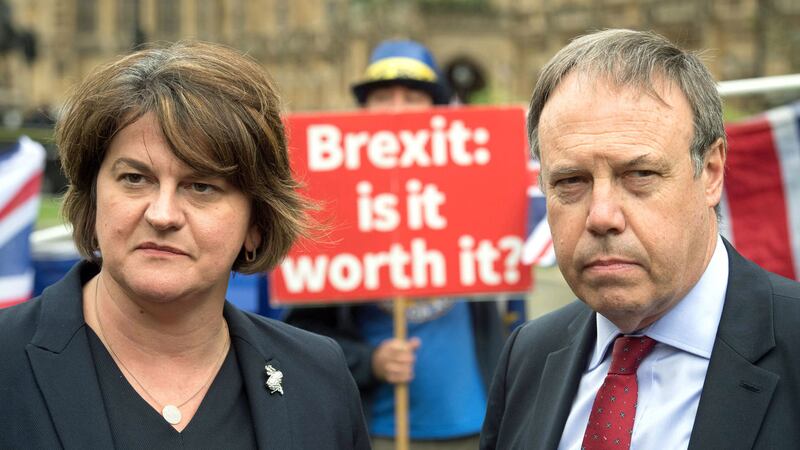WHAT is particularly scary about the Brexit crisis is the number of times we've heard the words "nobody knows" from the lips of people whose job is to know, or at least pretend to know, about the likely turn of events.
For once, no-one from the soon-to-be former Prime Minister to highly paid commentators has a clue what will happen next.
It is especially worrying for those tens of thousands whose jobs and livelihoods rest on the outcome.
Today - 11pm tonight to be precise - was to be the moment the UK would leave the EU, deal or no deal.
Instead, Theresa May, is desperately trying to get her Withdrawal Agreement with the EU over the line at the third attempt having had to beg the EU 27 for an extension, in what's been described as the greatest British humiliation since Suez in 1956.
A UK crash-out of the EU on April 12 with dire consequences for Ireland and Britain, and to a lesser extent for the EU generally, remains an alarming possibility.
It should never have come to this.
Mrs May is principal author of this mother of all crises, but the DUP also bears a heavy responsibility.
She put party-political interests ahead of the interests of her country; called an unnecessary election that lost her majority; pandered to the Tory right wing and to the DUP; imposed self-defeating red lines; recklessly triggered Article 50 without the semblance of a post Brexit plan, just as Bush and Blair went to war in Iraq without an after-plan; and refused to seek a consensus in Parliament that would have reflected the reality that almost half the country voted to remain.
With Parliament grabbing the agenda, DUP influence - on Brexit at any rate - may have passed its high-water mark although 10 votes remain hugely important in a hung Parliament, with Sinn Féin breaching the democratic spirit of the Good Friday Agreement by staying away and not speaking up and voting for the interests of Irish people at a critical juncture in history.
The DUP is finding out the hard way that Brexiteer MPs from English shires with appalling ignorance of the complexities of Ireland will never have the north's interests at heart and are unreliable confrères.
Representing a region that voted 56 per cent to 44 per cent in favour of Remain, where businesses and farmers are terrified about the prospect of a hard border, the DUP should have deployed their influence with the PM to promote the softest possible form of Brexit for a UK that registered less than 52 per cent for Leave - more than 14 per cent less than the margin required to change the constitution of your local golf club.
The DUP is finding out the hard way that Brexiteer MPs from English shires with appalling ignorance of the complexities of Ireland will never have the north's interests at heart
The DUP's resistance to the 'backstop' - a necessary temporary protection against the re-imposition of a hard border - and their disingenuous insistence that no deal will not result in such a hard border under EU law to safeguard the European single market - pending the invention of technology to do the job - has contributed significantly to this crisis.
If the UK crashes out with disruption to food supplies, transport and so on of the kind warned about in Operation Yellowhammer, the government's secret contingency plan, the DUP could find themselves being blamed by erstwhile Westminster 'allies' and their constituents, with consequent damage in Britain to what Mrs May calls "our precious Union".
Meanwhile, it's now clearer than ever that Mrs May's reliance on the DUP has resulted in the government dishonouring the obligation under the Good Friday Agreement, on whatever government with jurisdiction in Northern Ireland, British or Irish, to exercise that power "with rigorous impartiality on behalf of all the people in the diversity of their identities and traditions".
Statements such as those by secretary of state Karen Bradley and defence secretary Gavin Williamson, respectively before and after the announcement that a soldier will stand trial for murder in Derry on Bloody Sunday, confirm that this government, under DUP influence, has pusillanimously departed from the wise and more even-handed approach of previous administrations.
All this suggests that Professor Francis Campbell, a NI-born former British ambassador, is correct in identifying what he has described as "the new norm" in Whitehall's approach to Northern Ireland.
This "new norm" is a dark departure that will make any political progress here - whether Brexit happens or not - even more difficult and play into the hands of a new generation of hotheads who, having no memories of the horrors of the Troubles, may have little compunction about contemplating violence.








